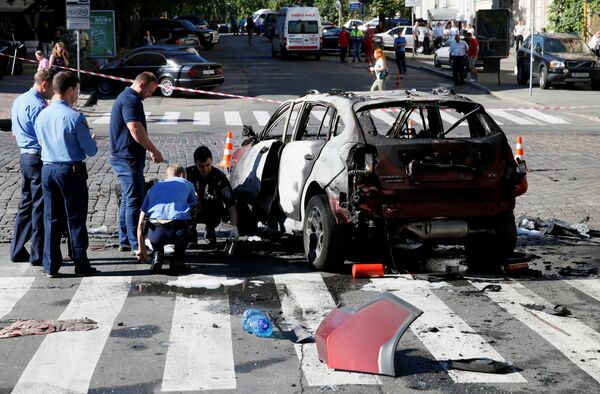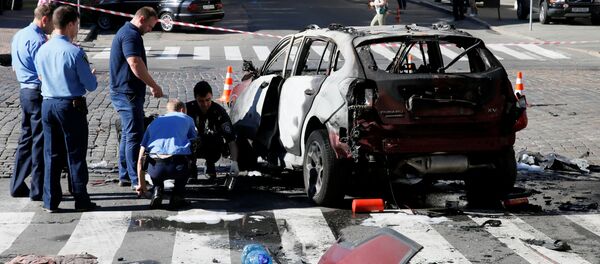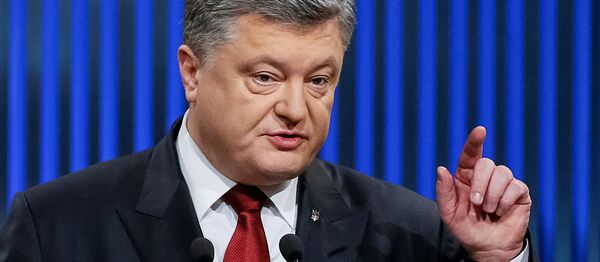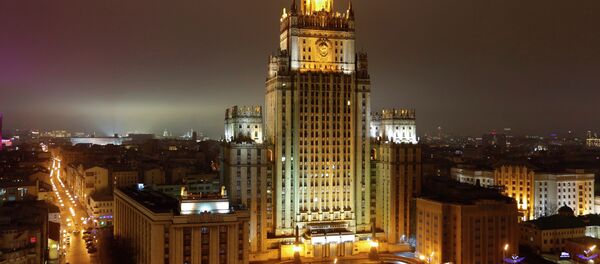According to the Ukrainian Interior Ministry, the explosion was likely caused by a remote-controlled explosive device. Commenting on the case, National Police Head Khatia Dekanoidze said that "solving this crime is a matter of honor for Ukraine's police."
For his part, President Petro Poroshenko said he was "shocked" by the killing, adding that he "knew Pavel personally." "The perpetrators must be punished," he emphasized.

Wednesday's attack was not the first time a journalist or opposition figure has been killed in broad daylight in Ukraine's capital. In April 2015, Ukrainian opposition journalist Oles Buzina was slain outside his home by two masked gunmen. That murder took place less than a day after former lawmaker and government critic Oleh Kalashnikov was killed at his residence in the capital. Another journalist, Donetsk-born Serhiy Sukhobok, was also killed the same month near his home in Kiev.
The suspects in the Buzina case were detained two months after the murder; in late 2015, they were released from detention and placed under house arrest.
Since 2014, over a dozen journalists, including Ukrainians and Russians, have been killed in Ukraine, many of them while covering the civil war that broke out in the country's east in April of that year.
On Wednesday, Sevgil Musayeva-Borovyk, Ukrayinska Pravda editor-in-chief, speculated that Sheremet's murder was also connected to his work.
However, Mikhail Pogrebinsky, the director of a Kiev-based think tank and acquaintance of Sheremet's told Russian news portal Svobodnaya Pressa that "Sheremet was not known for specializing in dangerous investigations; in his views he was moderately anti-Russian and moderately anti-Lukashenko. Among his colleagues he was considered somewhat of a maverick, not afraid to speak his mind."
Having met with and spoken to the journalist days before the killing, Pogrebinsky indicated that there were no signs that the journalist feared for his life.
At the same time, asked whether the murder will have any social and political fallout, the analyst said that at this point, "Ukrainian society has begun to get used to the fact that armed people walk around in city streets, that tens of thousands of people have unregistered firearms, that even Kiev sees occasional firefights."
For his part, Mikhail Rogozhnikov, contributor to Russia's Expert magazine, commented on Sheremet's killing by noting that "if the Gongadze case…was seen as a 'tremendous shock' for Ukraine, expecting this kind of a response in today's Ukraine is hardly possible." At present, he added, Ukraine "has enough ideologically charged, mentally disturbed people with access to firearms prone to acts of violence, and they are relatively self-sufficient in their choice of victims."
As Russian Foreign Ministry Spokeswoman Maria Zakharova recalled, Sheremet was "a professional journalist, who was not afraid of telling the authorities what he [thought] about them – to different authorities and at different periods of time. And he was respected for this." Unfortunately, she added, "Ukraine, (not the country, but its system) is turning into a mass grave for journalists and journalism."






